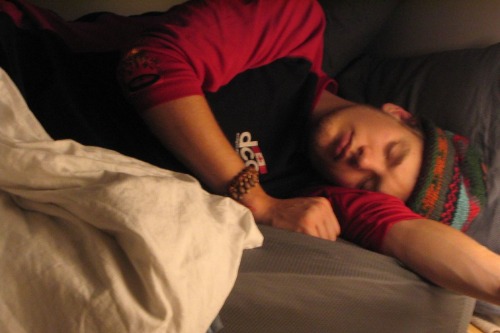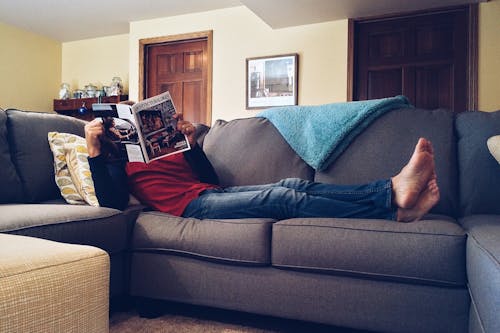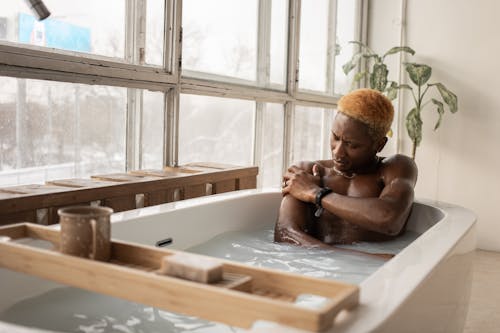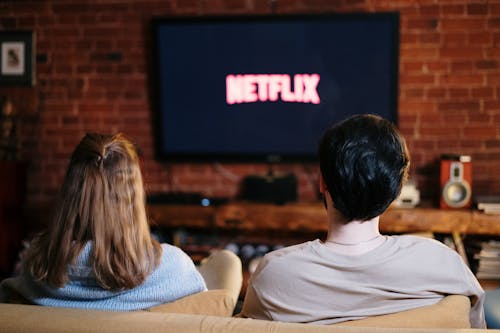1. Sleeping In on Weekends

There was a time when sleeping past 7 a.m. on a Saturday earned you a reputation for being unmotivated. Productivity culture prized early risers as more disciplined and ambitious. “You snooze, you lose” wasn’t just a saying—it was practically a lifestyle. Hitting the snooze button was seen as weakness, not wellness.
Now, sleep researchers and wellness experts champion extra sleep as crucial for mental and physical recovery. The CDC has even declared sleep deprivation a public health issue. Sleeping in is often recommended to help regulate stress hormones and support immune function. These days, a lazy morning in bed is more likely to be praised than judged.
2. Saying “No” to Social Plans

Turning down an invitation used to be labeled anti-social or rude, especially if you didn’t have a “good reason.” Busy calendars were badges of honor, and a quiet evening at home meant you were missing out. The fear of seeming lazy or boring kept many people overbooked and overwhelmed. Boundaries were considered optional at best.
Today, declining plans is often reframed as an act of self-respect and emotional preservation. Therapists and wellness influencers alike preach the importance of protecting your energy. Saying “no” is encouraged to maintain mental health and avoid burnout. It’s no longer a social faux pas—it’s a self-care strategy.
3. Taking Long Baths

For years, soaking in a tub was seen as indulgent and time-wasting, especially when a quick shower could do the trick. People who carved out time for a bubble bath were often seen as avoiding responsibilities. The idea was that only people with “nothing better to do” had time for long, luxurious soaks. Even magazines once mocked bath rituals as over-the-top.
Now, long baths are celebrated as therapeutic and restorative. Studies have shown they can lower cortisol levels and even improve heart health. Wellness routines often include Epsom salts, candles, and calming music for the full spa-at-home experience. What was once labeled lazy is now a multi-billion dollar self-care industry.
4. Taking Mental Health Days

Calling out of work without being physically sick used to seem like a cop-out. Mental health wasn’t part of the sick day conversation—it was invisible, and often ignored. If you needed a break, you were expected to “tough it out” or risk being seen as unreliable. Mental exhaustion was dismissed as a personal failing, not a health issue.
Today, many workplaces encourage mental health days, recognizing the toll stress and anxiety can take. Some companies even offer designated “wellness days” as part of their benefits. Psychologists now advocate for taking proactive breaks to prevent deeper burnout. It’s a sign of maturity, not laziness, to step back when your mind needs rest.
5. Journaling About Your Feelings

Writing in a diary used to be associated with teenage melodrama or naval-gazing adults with too much time on their hands. For years, emotional expression was treated as self-indulgent unless it served a clear purpose. “Get over it” was more common advice than “write it down.” Expressing feelings in writing was rarely seen as productive.
Now, journaling is backed by research as a powerful tool for emotional clarity and stress reduction. Guided journals and prompts are sold as part of daily self-care kits. Therapists recommend it for processing trauma and anxiety. That once “lazy” habit is now seen as active healing.
6. Watching TV to Unwind

Binge-watching used to be shorthand for “couch potato.” Watching multiple episodes—or even just zoning out in front of the screen—was equated with wasted time. “Turn off the TV and do something productive” was a mantra in many households. People were made to feel guilty for using TV as an escape.
Today, mindful TV-watching is considered a legitimate way to decompress, especially after a stressful day. Streaming a comfort show or a soothing documentary can be a form of emotional regulation. Mental health professionals even suggest curated viewing as a form of sensory downtime. It’s not about avoiding life, but about calming the nervous system.
7. Ordering Takeout Instead of Cooking

Getting takeout used to be labeled lazy or unhealthy, a last resort for people who couldn’t be bothered to cook. It carried a sense of shame, especially in the context of family meals or “being a good adult.” Home-cooked meals were held up as the gold standard of responsibility. Anything less was viewed as cutting corners.
But in modern wellness culture, food convenience is often reframed as a boundary-setting choice. People now recognize that cooking every meal isn’t always sustainable—or necessary. Ordering out can reduce decision fatigue and give you back precious time and energy. Sometimes, self-care looks like letting someone else do the work.
8. Spending the Day Doing “Nothing”

Unscheduled time used to feel awkward, even uncomfortable, especially in a culture that idolized hustle. A blank calendar was something to fill, not something to protect. People felt compelled to justify downtime, as if resting required an excuse. Doing nothing was practically synonymous with being unproductive.
Now, mindfulness experts and mental health advocates call this “intentional rest.” It’s not laziness—it’s restoration. Having unstructured time is crucial for creativity, emotional balance, and nervous system recovery. In a fast-paced world, choosing to pause is an act of self-awareness, not idleness.
This post 8 Things That Used to Be Considered Lazy—Now They’re Called “Self-Care” was first published on American Charm.


